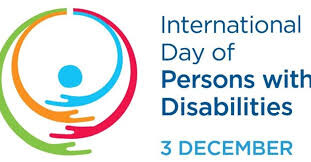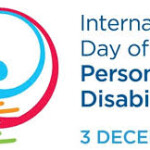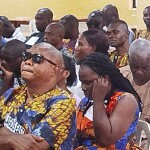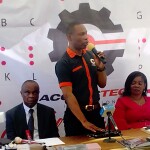On December 3rd, 2024, the world commemorates the International Day of Persons with Disabilities (IDPD), with the theme "Amplifying the leadership of persons with disabilities for an inclusive and sustainable future". While this theme resonates globally, its relevance to Nigeria's socio-political and economic landscape exposes deep-seated inequities and systemic ableism hat continue to exclude persons with disabilities (PWDs) from meaningful participation in leadership.
Despite the abundant provisions of the Discrimination Against Persons with Disabilities (Prohibition) Act 2019, which mandates inclusivity in education, employment, and public life, the practical realities for Nigerians with disabilities are grim. Five years into its enactment, dissonance between policy and practice remain obvious, and highlight the negligence of public and private entities to respect the law and harness the potential of PWDs.
The Education Crisis
Whereas it is a consensus that education remains the bedrock of empowerment, yet for many Nigerians with disabilities, access to inclusive education is still an elusive dream. Public schools often lack accessible infrastructure, such as ramps, accessible technology and devices, while private schools, motivated by profit, rarely prioritise inclusivity. This systemic exclusion begins early, denying PWDs the foundational tools to evolve into leaders.
The ripple effects are evident in the tertiary sector. Only a handful of higher institutions are equipped to accommodate students with disabilities, and even fewer offer scholarships or financial aid targeted at this vulnerable demographic. With education being a proven tool for breaking cycles of poverty, the marginalisation of PWDs in Nigeria’s education system perpetuates their social exclusion.
No Access to Equal Employment Opportunities
The 2019 Disability Act stipulates that at least 5% of public and private sector jobs be allocated to PWDs. However, this mandate has largely been ignored. Many employers perceive PWDs as liabilities rather than assets, leading to systemic discrimination in hiring practices. The lack of workplace accommodations — such as adaptive technologies, accessible facilities, and flexible work arrangements — further exacerbates the problem.
Unemployment among PWDs remains disproportionately high, perpetuating a vicious cycle of poverty and dependency. This is particularly troubling given the proven capabilities of PWDs in various fields when given equal opportunities. Their exclusion not only undermines individual potential but also robs the nation of a vital, untapped resource.
Political Participation: The Missing Voices
Governance in Nigeria has remained largely inaccessible to PWDs, despite constitutional provisions that guarantee equality. Political parties rarely prioritise inclusion, and the financial costs of running for office effectively exclude PWDs, who are disproportionately affected by poverty. Consequently, the voices of PWDs are glaringly absent in policy-making processes, further entrenching their marginalisation.
In the National Assembly and state houses of assembly, the presence of lawmakers with disabilities is almost non-existent. This lack of representation means that policies affecting PWDs are often designed without their input, leading to poorly implemented or irrelevant interventions.
The Gender Divide: Women with Disabilities Bear the Brunt
Women with disabilities face compounded marginalisation, stemming from their gender and disability status. They are often excluded from education, employment, and social protection schemes, leaving them vulnerable to exploitation and abuse. Cultural norms and patriarchal structures further limit their participation in public life, perpetuating cycles of invisibility and inequality.
For instance, while the government has initiated programs aimed at empowering women, these often fail to consider the unique needs of women with disabilities. As a result, they are left out of entrepreneurship initiatives, skill acquisition programs, and leadership development opportunities.
The failure to include PWDs in leadership is not merely a governmental oversight but also a societal one. The private sector, which plays a critical role in driving economic growth, has been largely absent in efforts to empower PWDs. Corporate Social Responsibility (CSR) initiatives often neglect disability inclusion, focusing instead on more visible causes.
Similarly, public institutions have failed to enforce existing laws and policies. The National Commission for Persons with Disabilities (NCPWD), established to oversee the implementation of the 2019 Act, lacks the political will to hold offenders accountable.
To achieve true inclusion, Nigeria must transition from tokenism to systemic change. First, there must be a renewed commitment to enforcing the 2019 Disability Act. This includes monitoring compliance with the 5% employment quota and penalising defaulters.
Second, the education sector must be overhauled to accommodate PWDs at all levels. This includes training teachers in inclusive education, retrofitting schools with accessible infrastructure, and providing financial support to students with disabilities.
Third, political parties must adopt affirmative action policies to ensure the representation of PWDs in governance. This includes waiving nomination fees and providing support for campaigns.
Fourth, targeted interventions must address the unique challenges faced by women with disabilities. These should include livelihood programmes, reproductive health services, and initiatives aimed at combating gender-based violence.
Finally, public and private entities must collaborate to create inclusive workplaces. This includes investing in adaptive technologies, conducting disability awareness training, and fostering a culture of inclusivity.
In conclusion, the theme of this year’s IDPD calls for the empowerment of disability communities for inclusive leadership and development. For Nigeria, this is both a challenge and an opportunity. The country must recognise that the exclusion of PWDs is not only a violation of their rights but also a loss of potential for national development.
As we reflect on the progress made since the enactment of the 2019 Disability Act, it is clear that much remains to be done. Inclusion is not merely about ticking boxes; it is about creating a society where every Nigerian, regardless of ability, can contribute meaningfully to our collective growth. The time for action is now.







